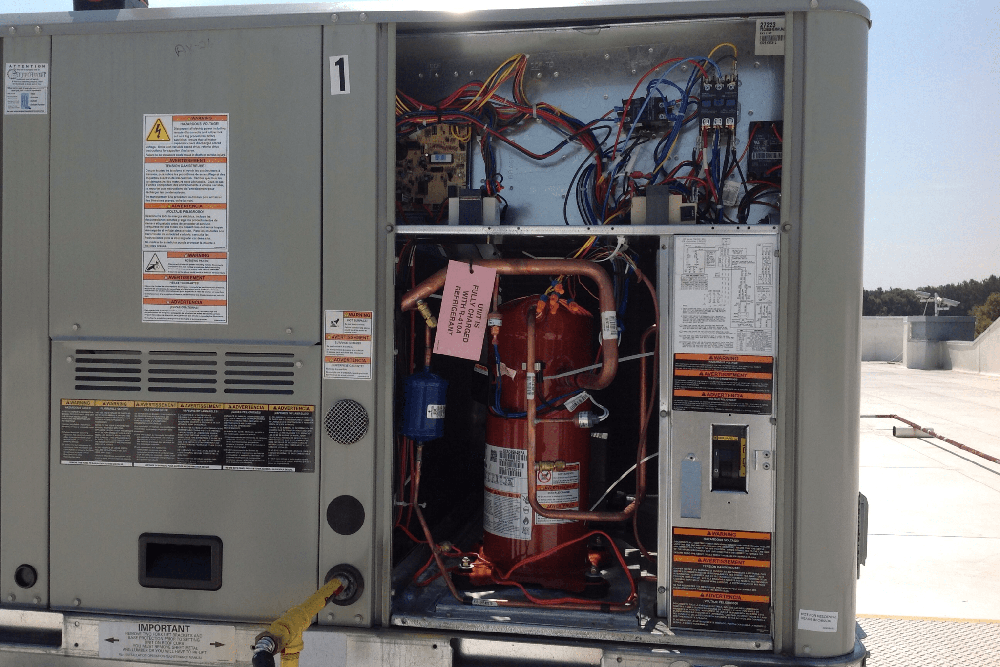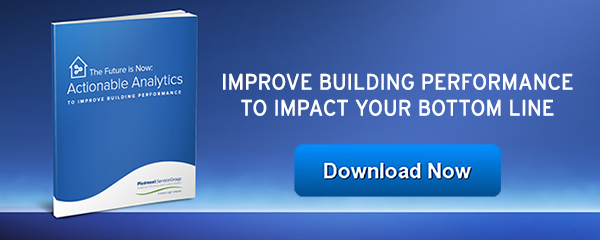These 3 Commercial Heating and Cooling Problems are Solvable - Here’s How
When trying to balance all the different tasks that come with managing a large commercial facility in Virginia, North Carolina, or South Carolina, it pays to learn how to quickly diagnose and fix problems rather than waiting until they get worse.

With that in mind, here’s a quick, practical guide to help you identify and resolve three common commercial heating and cooling HVAC problems that may occur in your building:
The Problem: Poor air quality
If occupants in a particular part of the building begin complaining about the air being stuffy, smelling odd, or other issues with the air quality, it’s likely a sign that maintenance is needed on one or more of the air ducts into that area. If the air quality issue is affecting most or all of the building, the problem is more likely in the mechanical equipment itself.
Some common causes of poor air quality include:
- Dirty air filters
- Condensed water that’s become stagnant
- Melted debris on the heat exchanger
- Mechanical parts that are overheating
The Solution: Routine maintenance
In all these cases, well-planned routine maintenance can usually catch these issues before they escalate enough to harm air quality. A comprehensive planned maintenance program includes periodic visual inspections of the ventilation ducts and machinery, and diagnostic tests to determine if any parts need to be repaired or replaced to prevent future issues.
The Problem: Unusual vent noises
Heating or air conditioning vents making loud sounds intermittently can be really annoying for those occupying the building, from tenants to clients and customers. Potential causes of noisy ventilation are:
- Loose or broken fan blades
- Cracked or broken air ducts
Less often, the sounds are coming from the heating or cooling units themselves. If the unit is accessible, get up close to it and try to determine if the sounds are louder near the unit, and if they correspond to what is being heard elsewhere in the building.
The Solution: Get professional help to isolate and eliminate the problem
In both cases - whether the noises are coming from the vents or from the heating or cooling units - isolating and resolving the issue will often require expertise and equipment not available in-house. In this case, contact your local, trusted commercial HVAC company to have an experienced technician assist with the problem.
The Problem: Rising energy bills
Sometimes, a problem appears on paper before you notice anything is wrong. The system may still be maintaining a comfortable temperature and good air quality throughout the building, but you notice that your monthly energy usage is rising with no simple explanation.
Likely, your HVAC system is struggling to perform efficiently due to an underlying problem, and is using more energy to keep things comfortable. This can happen for many reasons:
- Equipment and ducting that needs to be cleaned
- Equipment that is nearing the end of its expected lifespan
- One or more system components that is malfunctioning or not functioning, requiring others to pick up the slack
- Electronic controls that are malfunctioning or require recalibration
The Solution: It depends on the root cause
All of these issues require different solutions, and the most effective option is to have a trained technician come in to perform an operational assessment and a thorough inspection to properly identify the root cause(s).
A great option is to install a building automation and analytics system to control and monitor your HVAC via electronic sensors. Some modern HVAC systems can incorporate machine learning and artificial intelligence to continually optimize the system to make sure it’s running as efficiently as possible and that you are aware of any issues as early as possible.
Of course, building automation and analytics can be a big step and a sizable investment, so it’s important to consider your current HVAC system’s health and lifespan first.
At Piedmont Service Group, our experienced commercial HVAC technicians and energy engineers are here to answer your questions and discuss your options for resolving common problems with your commercial building’s heating and cooling systems.

